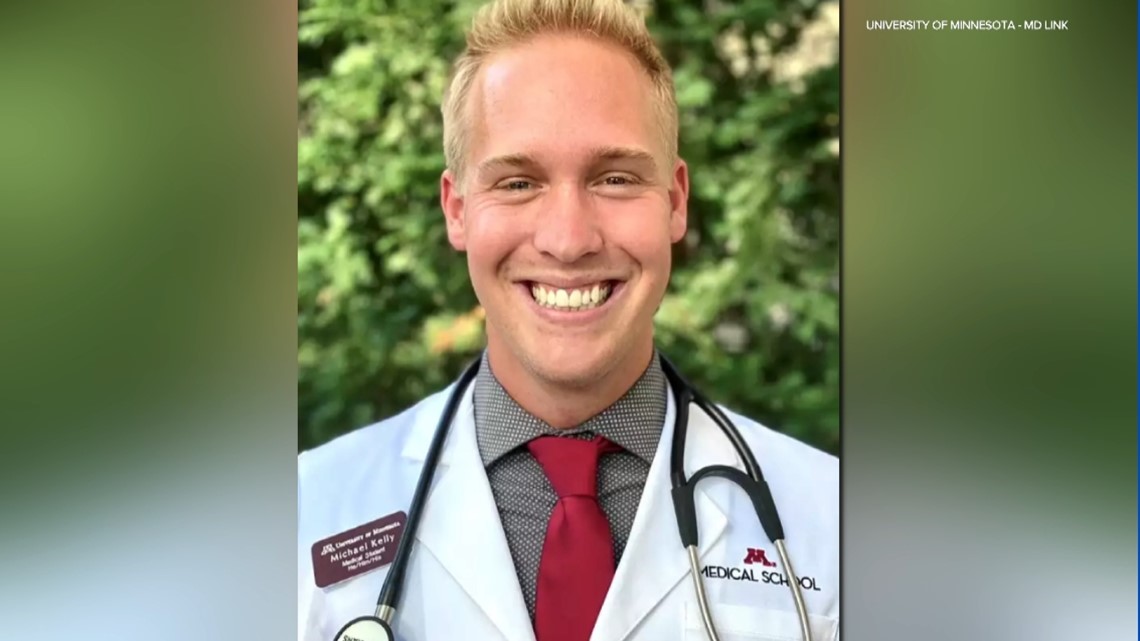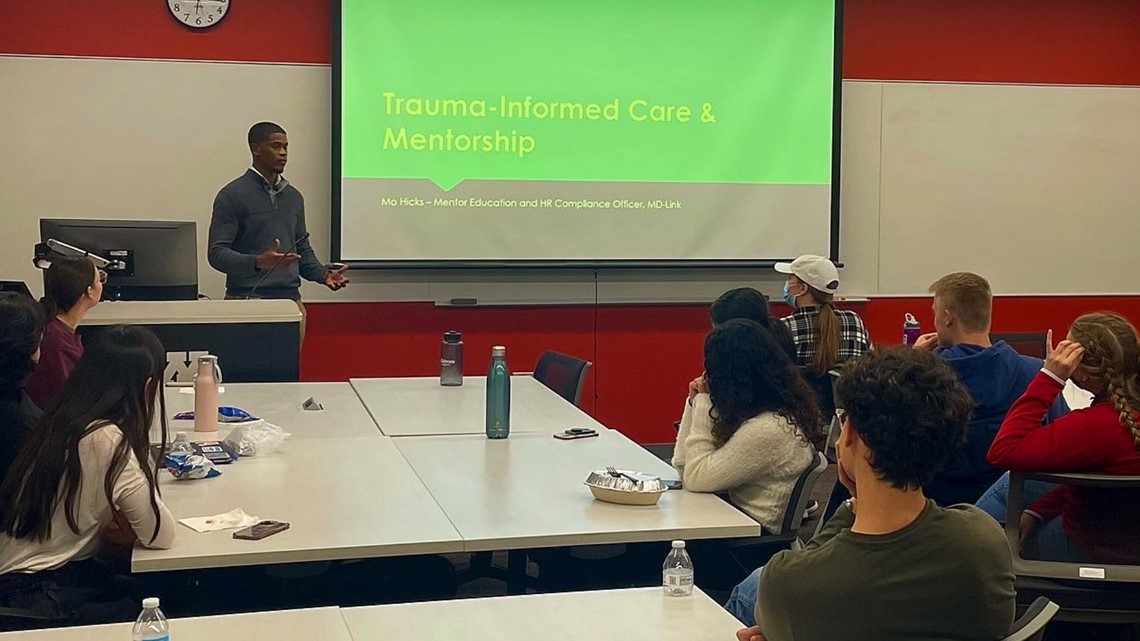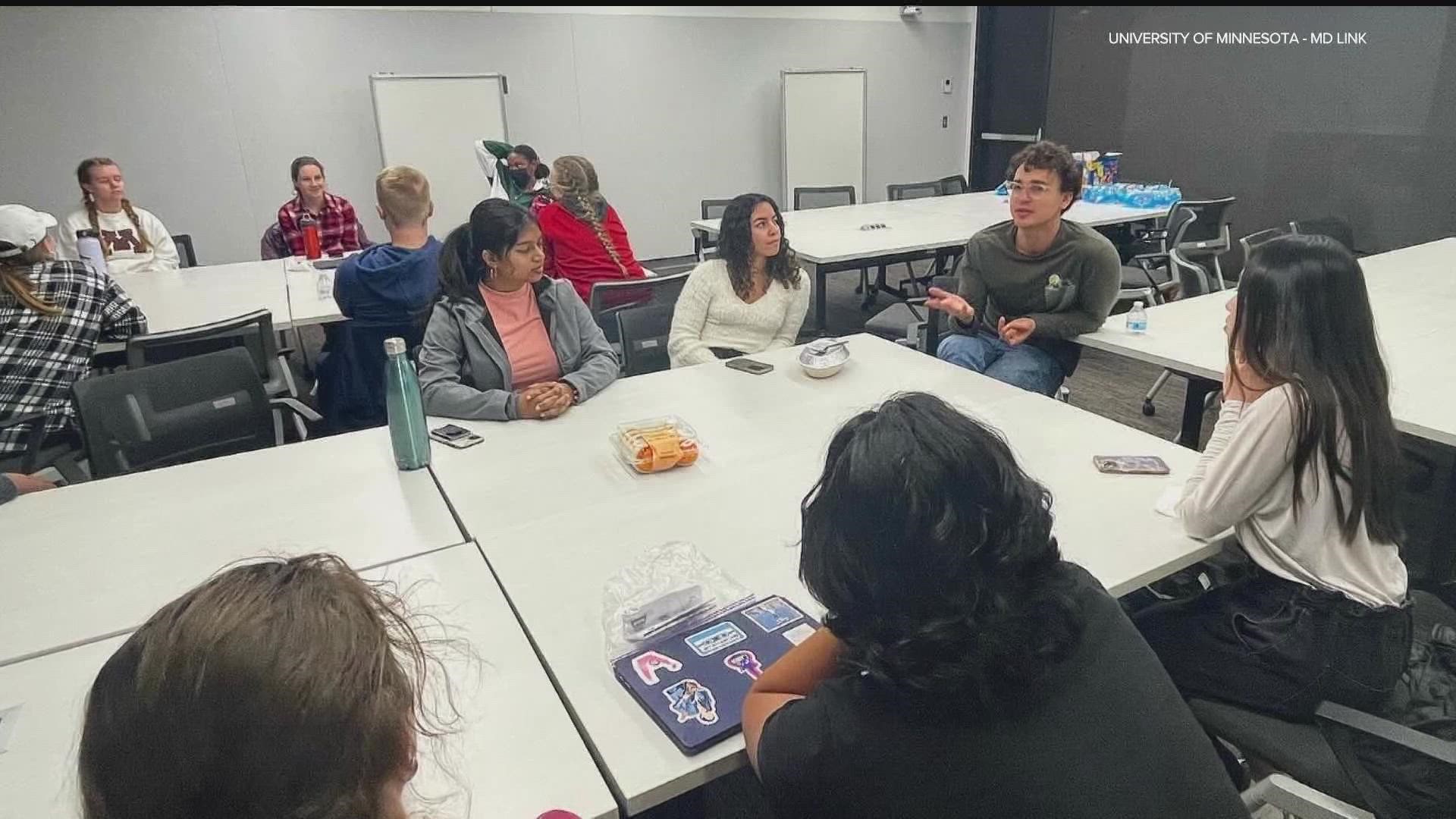MINNEAPOLIS — Michael Kelly knows not everyone is dealt a great hand in life. The second-year medical student at the University of Minnesota grew up in the foster care system.
"I moved like 16 times before college... through five different schools," Kelly said. "There were just a lot of instabilities in my life."
Kelly said the people in his life who helped get him to college motivated him to be that person to others eventually, when he had the resources and the means to do so. Then during his first year of medical school, he finally founded the group he'd been dreaming of: MD Link.
"It started right away, I met with another colleague that came to me with an idea of just reaching out in the community and just seeing how we as medical students could uplift youth," Kelly said.


The group, already a registered nonprofit, has three "pillars of advocacy": mentorship, workshops, and community awareness.
MD Link works with a number of community affiliates and connects with youth whom they mentor. Kelly works with Rebound, Inc., where he volunteers about six hours a month.
Participation in MD Link "can look like anything from a couple of hours a month to 20 hours a week depending on how interested you are in getting involved in our organization," Kelly said.
Student leaders also host educational workshops for community members, on everything from STI education to financial literacy. Among each other, they host workshops on trauma-informed care and cultural humility. Mo Hicks, also a second-year medical student, leads those workshops.


"It means being a leader; it means being a mentor," Hicks said. "It means being able to address these factors that before may not have been considered under the realm of what a medical doctor is to do, and it means being able to have some of these skills to address some of the trauma... some of the inequities that are going on in their communities."
The group is growing fast. Now, Kelly says he's excited to involve students outside of the medical school - already, a few law students are members.
"It just has turned into this beautiful, blossoming nonprofit that really fills a lot of our cups," he said.
You can donate to the nonprofit here, or learn how to get involved.
Do you know someone who is making a difference, or is there a business or nonprofit going above and beyond to help others? Send us your ideas for stories of "Communities that KARE" in the form below:
Watch more Communities that KARE:
Watch all of the latest stories from Communities that KARE in our YouTube playlist:

